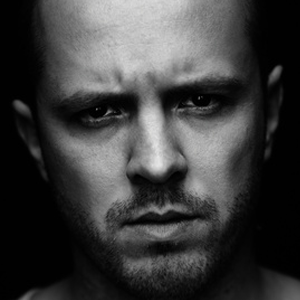Table of Contents
What are the different types of vampires? Vampires conventionally have superhuman strength, superhuman speed, and superhuman senses including specifically keen senses of sight, hearing, and smell. They also, of course, never age and never change. They are usually weak to sunlight which is why they often live in dark places and prowl at night, with their daytime typically spent sleeping in. When exposed to the sun, they go out in flames. Though practically immortals, they could still be killed too by getting impaled in the heart with a wooden stake. What are the different types of vampires? Since vampires are creatures of evil and darkness, they are vulnerable to anything associated with the divine. For this reason, they are particularly weak to crosses and other religious artifacts. In this article, you’ll learn what are the different types of vampires?
Sanguine Vampires vs. Non – Blood Drinkers
What are the different types of vampires? Vampires are one of the most popular and pervasive monsters in Western literature, with vampire-centric stories having been told and retold in some form or another throughout the centuries. From Sheridan Le Fanu’s 1872 novella Carmilla to Bram Stoker’s 1897 novel Dracula and to the more recent Twilight novels by Stephanie Meyer, vampires have persisted as one of the more enduring pieces of literary symbolisms that embody varying aspects of social conflicts. Elements of vampire lore are perpetually interwoven to issues of class, religion, race, and gender, among others.
Of course, like any other literary archetypes, vampires exist in various forms. Though their baseline remains the same – as creatures of the night with less-than-good intentions – vampires can be mainly sorted into two types: blood drinkers or sanguine vampires and non-blood drinkers, both of which can be further classified into different breeds.
Sanguine Vampires
What are the different types of vampires? Sanguine vampires are immortal blood drinkers who need to regularly consume blood for their strength and survival. They are the most traditional kind of vampire, with their lore having been found in cultures around the world for millennia. Elements of their myths can be traced in old stories from Ancient Babylon, Greece, and Asia.
Mystical Vampires
What are the different types of vampires? These sanguine vampires are rare. Having been humans before, they are turned into vampires by a powerful witch or warlock, or another magical practitioner, most likely as a form of punishment. Mystical vampires may or may not have the same strengths and weaknesses of a traditional vampire. Depending on the magical practitioner who turned them, they may also have some sort of demonic connection if a demon had been called upon to aid in the turning.
Direct Demonic Origin
These standard vampires are the most common. They appear as exquisitely attractive humans with an otherworldly grace. However, they can distort that image when displaying their vampiric nature – eyes glowing and fangs growing. Standard vampires can grow stronger as they survive longer; that is, a 1,500-year-old standard vampire would be substantially stronger than a 600-year-old one. Some of these vampires also can attain talents and powers by drinking people’s blood. They have some level of psychic abilities as well.
Direct demonic origin vampires have the parasitic vampire virus in their DNA. This virus came from their first ancestors, who are most likely demons mating as humans to create the first vampires. Only pure-breed vampires can procreate and give birth to vampire children with the same vampire virus. Other vampires rely on their venom to turn a human into a vampire.
Non-Direct Demonic Origin or Nosferatu
What are the different types of vampires? The Nosferatu aren’t born vampires, unlike Direct Demonic Origin vampires. Instead, they have been infected by the vampire virus as humans and thus turned into vampires. The Nosferatu do not possess the traditional beauty attributed to vampires. Instead, they look monstrous, all the time. Thus, they are doomed to hide in the shadows for the rest of their immortal lives.
The Nosferatu are an inferior race, but with enhanced strength, speed, and senses. However, unlike the Direct Demonic Origin vampires, they aren’t able to attain other talents or capabilities and have no psychic abilities. Most of the Nosferatu are hunted down for sport, if not by vampire hunters then by the Standard vampires themselves.
Non-blood Drinkers
These vampires don’t feed off human blood to survive but still possess the traits inherent of vampires, such as their superhuman abilities.
Psi Vampires
What are the different types of vampires? Psionic vampires feed of a human’s life force, but not the blood. There is no physical harm involved, though the prey would feel exhausted after a feeding, most often not even realizing that they have been fed on.
Emphatic Vampires
In contrast to psionic vampires, emphatic vampires don’t drain the life force of their prey but instead feeds off their emotions. Happiness and love taste fantastic to them, and so do anger and fear.
Sexual Vampires
What are the different types of vampires? These vampires are practically like succubi and incubi. They drain the sexual energy of their prey, usually during the moment of orgasm. This could be a psychic feeding, or it could be through the consumption of bodily fluids infused by the glow of sex.






 I write bitchin’ kick-ass books about serious sh*t. My books are written for everyone in an easy to read and understandable style.
I write bitchin’ kick-ass books about serious sh*t. My books are written for everyone in an easy to read and understandable style.